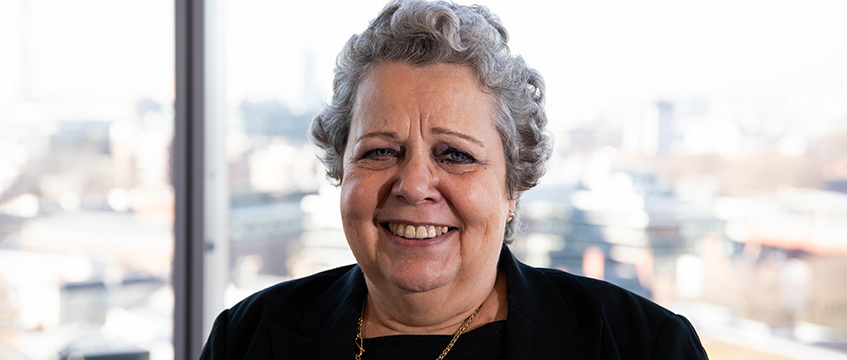Why we all need to get comfortable talking about menopause
COMMENT There is a society-wide perception that the menopause is a “women’s issue” but this simply isn’t the case and we urgently need to update this view.
Because regardless of our personal circumstances and role within the real estate industry, the chances are we’re all interacting with menopausal women on a day-to-day basis.
The NHS estimates there are around 13m people who are currently peri or menopausal in the UK – that’s one-third of the entire UK female population.
COMMENT There is a society-wide perception that the menopause is a “women’s issue” but this simply isn’t the case and we urgently need to update this view.
Because regardless of our personal circumstances and role within the real estate industry, the chances are we’re all interacting with menopausal women on a day-to-day basis.
The NHS estimates there are around 13m people who are currently peri or menopausal in the UK – that’s one-third of the entire UK female population.
And with eight out of 10 menopausal people currently in work, even if you don’t personally have a partner or family member going through the menopause, you’re almost certainly working with someone who is.
Just as issues such as pregnancy and parenting affect people of all genders, we need to recognise that the menopause doesn’t happen in isolation. This is an “everyone issue” and we’ve got to get comfortable talking about it – and soon – because women over the age of 50 represent the fastest-growing demographic in UK workplaces.
What is the menopause?
The menopause refers to the time in every woman’s life when her periods stop and her ovaries lose their reproductive function. Usually this occurs between the ages of 45 and 55, but some women may become menopausal in their 30s or even younger, especially if they have, for example, been through chemotherapy for the treatment of cancer.
There are more than 30 symptoms of the menopause, including sleeplessness, panic attacks, hot flushes, anxiety, depression, rage and a loss of confidence.
With a typical duration of four to eight years, the menopause is a long-term, non-static experience. As a result of this, women’s needs in the workplace will change over time.
Critically, the menopause is different for every woman – and so a one-size-fits-all approach to it in business will fail to meet the mark.
How do we stop losing women at the peak of their career?
The menopause tends to arrive when most women are at or approaching the peak of their career. For me, the tragedy is that some organisations are failing to support women through this transitional time – and, consequently, our industry is losing lots of brilliant people.
Yet this is a cultural, whole-of-workplace issue that affects how we all behave and interact – and we need to get over the notion that this is something not to be talked about because many of our best women are leaving their roles, reducing their hours and passing up promotion opportunities because of menopause symptoms.
I know from experience that many women fear the menopause will affect their future career. Some might have seen colleagues go through it and if their experience wasn’t good, they may be unwilling to speak up about their true – and changing – needs. Other senior women may fear the changes associated with the menopause will impact their reputation to such an extent they feel no choice but to leave their profession completely. This, as I have said, is a tragedy, and it’s up to the whole industry to do something about it.
What does good menopause practice look like in the workplace?
The menopause isn’t something that can simply be covered off in a single “lunch and learn” session only attended by those experiencing symptoms.
We need to stop siloing the opportunities for change around women: organisations must ensure that people of all genders are cognisant of the menopause and its impacts.
Since managers are the nodes for change in organisations and they define its culture and behaviour, they need to be sufficiently trained and supported.
Specific menopause policies and guidelines are helpful but, ultimately, managers need to be ready to be flexible and responsive over a significant period of time – as some menopausal women will need to have a conversation about changes to their health every three to six months.
Those without training are understandably going to find this topic difficult – the menopause is something we didn’t talk about until quite recently.
This may particularly be the case for men, which is why in October, close to World Menopause Day, Real Estate Balance is running a Men-opause event specifically aimed at raising awareness around this topic amongst men working in real estate.
Taking place at the Museum of London in partnership with our member Maples Teesdale, the event will feature a talk by Kate Usher, an expert in helping businesses develop inclusive cultures around the menopause.
Click here if you’re interested in attending, you can learn more and request a place.
Sue Brown is managing director at Real Estate Balance











